Life
Sign up for our newsletter
We summarize the week's scientific breakthroughs every Thursday.
-
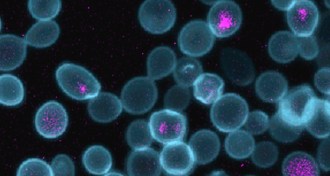 Life
LifeA mash-up of yeast and E. coli shows how mitochondria might have evolved
An engineered partnership between yeast and E. coli suggests one way mitochondria may have evolved.
-
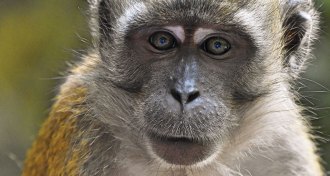 Health & Medicine
Health & MedicineMalaysia is ground zero for the next malaria menace
With deforestation in Malaysia, monkeys and humans are getting closer — and mosquitoes are infecting humans with malaria from monkeys.
By Yao-Hua Law -
 Science & Society
Science & SocietyScreen time to heal, and perhaps to harm
Editor in Chief Nancy Shute reflects on the advances in virtual reality technology and how much time we spend on our computers and smartphones.
By Nancy Shute -
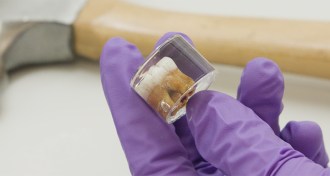 Anthropology
AnthropologyNeandertal teeth reveal the earliest known signs of lead exposure
Chemical analyses of teeth from young Neandertals show that lead exposure in hominids goes back some 250,000 years.
-
 Life
LifeEating less protein may help curb gut bacteria’s growth
A new study in mice and 30 mammal species hints at what controls the types and amounts of gut microbes, which can contribute to health and disease.
-
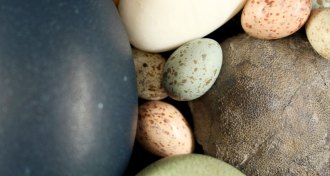 Paleontology
PaleontologyEggs evolved color and speckles only once — during the age of dinosaurs
Birds’ colorful eggs were inherited from their nonavian dinosaur ancestors.
-
 Neuroscience
NeuroscienceStimulating the spinal cord helps 3 more paralyzed people walk
There’s more evidence that with targeted spinal cord stimulation, paralyzed people can move voluntarily — and even walk.
-
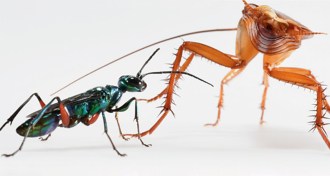 Animals
AnimalsHow roaches fight off wasps that turn their victims into zombies
Cockroaches kick attacking emerald jewel wasps to avoid being incapacitated and buried alive as living meat for the wasps’ young.
By Susan Milius -
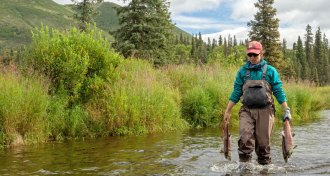 Ecosystems
EcosystemsHow researchers flinging salmon inadvertently spurred tree growth
Scientists studying salmon in Alaska flung dead fish into the forest. After 20 years, the nutrients from those carcasses sped up tree growth.
-
 Neuroscience
NeuroscienceYoung people’s memories improved when they stopped using marijuana
After just a week of not using pot, teens’ and young adults’ abilities to remember lists of words got better, a small study finds.
-
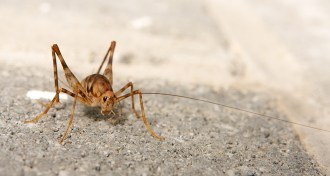 Animals
AnimalsIf you want to believe your home’s bug free, don’t read this book
‘Never Home Alone’ reveals the hidden world living in human-made spaces.
-
 Archaeology
ArchaeologyAncient South Americans tasted chocolate 1,500 years before anyone else
Artifacts with traces of cacao push back the known date for when the plant was first domesticated by 1,500 years.
By Bruce Bower